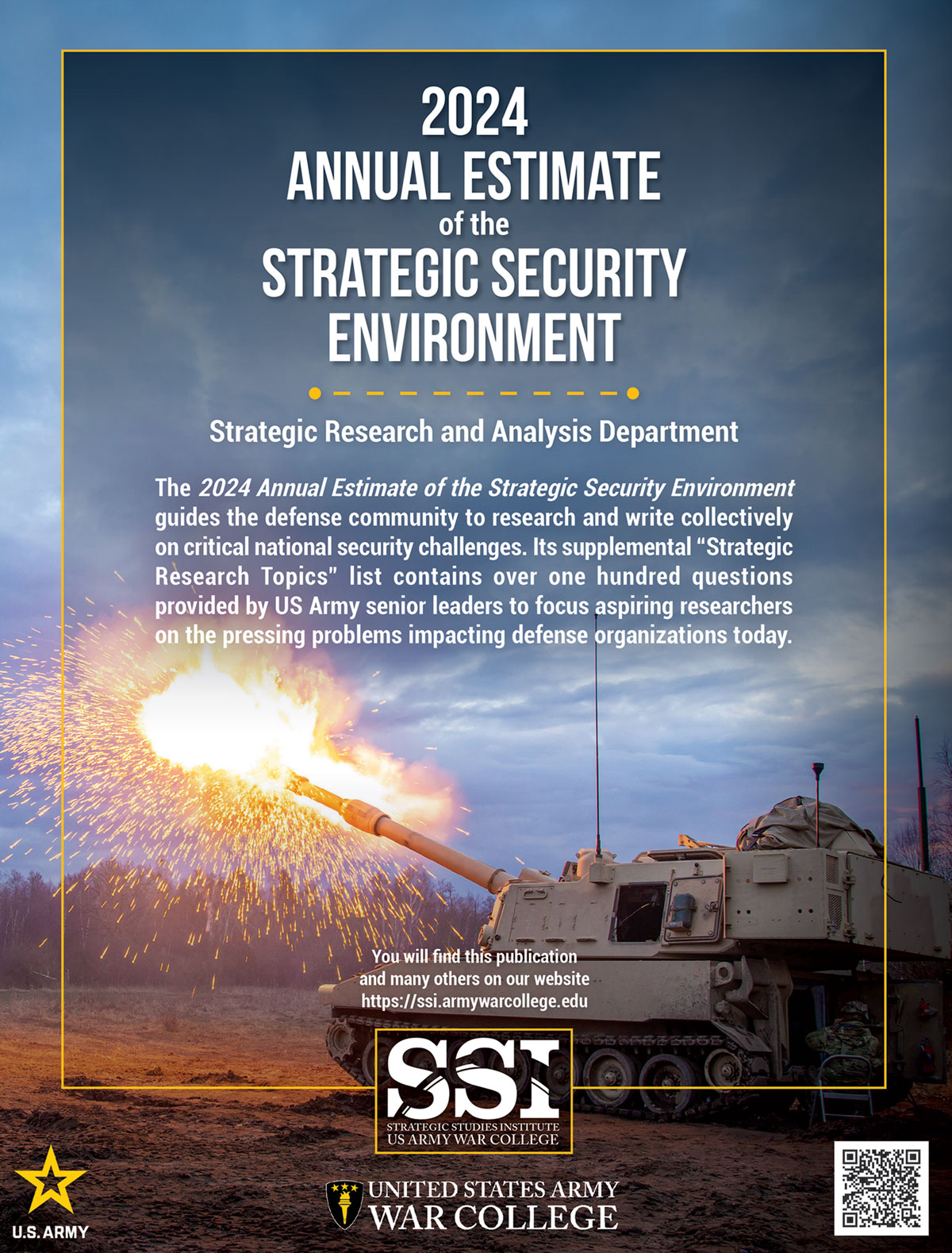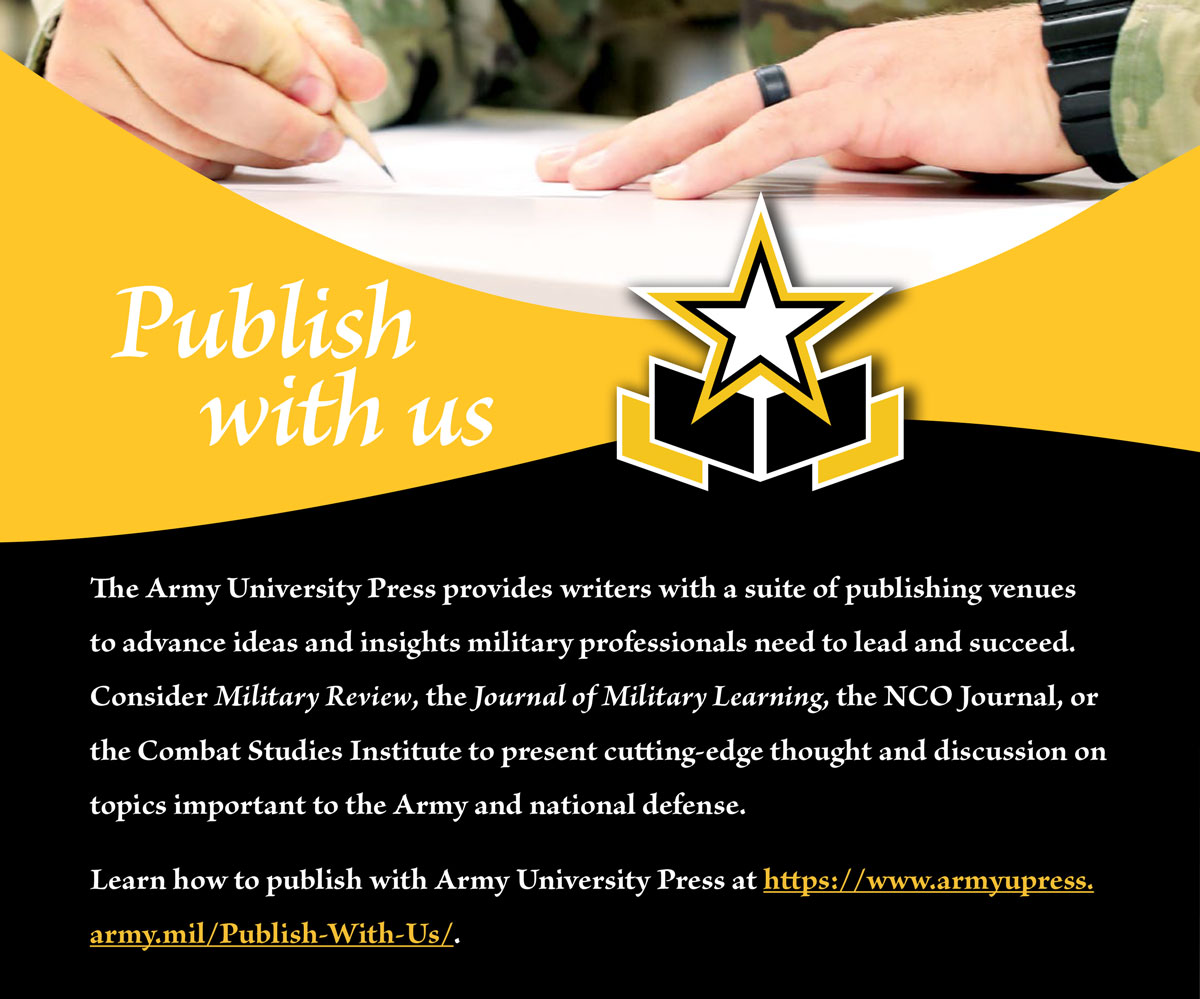Announcing the Harding Fellowship
Col. Todd Schmidt, PhD, U.S. Army
Download the PDF 
In the priority pursuit of renewing professional military writing and discourse, Gen. Randy George, chief of staff of the Army; Gen. Gary Brito, commanding general, U.S. Army Training and Doctrine Command; and Lt. Gen. Milford Beagle, commanding general, Combined Arms Center, are excited to announce the launch of the Harding Fellowship program in 2024. An Army-wide military personnel (MILPER) message, MILPER 24-321, was released on 9 August 2024, and senior leaders are currently promoting the newest addition to the Army’s Broadening Opportunity Program to attract its best and brightest.
The Harding Fellowship program was established as an important component of an enterprise-wide effort to improve the written communication skills of soldiers. Leaders across the Army, particularly at the strategic level, need to be able to engage intellectually in the arena of professional discourse. While we may be the best-trained military in the world, we cannot lose our way by dismissing the incredible importance of professional military education and intellectual engagement.
Engaged and observant leaders understand that poor communication skills, particularly as they relate to writing and intellectual discourse, can be an unfortunate byproduct of our institutional culture, where more emphasis is often placed on tactical thinking, avoiding risk related to voicing opinion, and the physical nature of our profession. We often place less emphasis on intellectual development and engagement, higher education, and developing strategic thinking skills. To change course from this mindset, “intellectualism” must become one of our core Army values.1
There must be equal emphasis on career-long education and training. The ideas that “just-in-time” education is a real theory of education or that “constructive credit” for deployments in lieu of attending professional military education institutions such as the Army War College need to be banished. Finally, if we are serious about real transformation, we need to invest in and resource our schools and training centers in a manner that demonstrates their top priority.
For an example from the past, consider the School of Advanced Military Studies. This revered institution was created during the Cold War and a time of renaissance in military education. Additionally, programs that sent leaders to civilian graduate schools were conceived as initiatives to challenge our best and brightest. Senior leaders at that time understood the importance of graduate-level education and that it cannot be a zero-sum game in terms of investment of time and resources, especially as we prepare to engage in a complex and demanding future operational environment.
The Harding Project and the Harding Fellowship are intended to reinforce the Army’s commitment to education and intellectual engagement. We must extinguish the influences of anti-intellectualism and constructive credit and promote the importance of academics and writing in the military profession. One way of doing this is through “broadening opportunity programs” (BOP).
In the case of the Harding Fellowship, the Army’s newest BOP, select branches send nominated candidates to pursue a master’s degree in journalism and communication. Upon graduation, these leaders will serve at least one year as a military editor in chief of their respective branch journals and incur a two-year additional duty service obligation. The intended outcome is that over time, as multiple cohorts matriculate through this program, awareness of the importance of written communication skills will become more embedded as an important component of what we value in our leadership development.
Currently, written communication skills, an imperative subcomponent of Army leadership attributes and competencies, is underemphasized in our institutional culture, doctrine, and regulations. This is changing, however, as the Army has updated Department of the Army Pamphlet 25-40, Army Publishing Program Procedures, and is considering updates to Army Regulation 600-100, Army Profession and Leadership Policy; Army Doctrine Publication 6-22, Army Leadership and the Profession; and Field Manual 6-22, Developing Leaders.
The rationale driving this evolution is increased scientific understanding of how demonstrated excellence in written communication skills is tied to higher cognitive performance, increased intellectual curiosity, improved logic, faster information processing, improved comprehension skills, and better decision-making. In short, good writers make better leaders. Better leaders can outthink their adversary, making better decisions faster. The result is a more lethal Army—the ULTIMATE priority of the chief of staff of the Army.
Combined Arms Center and Army University leaders enjoyed the opportunity to meet each of the Fellows at the first Harding Training Workshop held at Fort Leavenworth, Kansas, in June. Gregg Thompson, deputy to the commanding general at the Combined Arms Center, observed that the Harding Project and Army University Press had succeeded in creating an important community of practice that did not exist six months ago. He challenged participants to pursue sustainable change that is, in the long term, embedded in our professional education. This is the long game—changing how we educate and develop leaders.
We congratulate our 2024 Harding Fellows on their selection. Nominated by their branch senior leadership, and approved by Lt. Gen. Milford Beagle and Gen. Gary Brito, the 2024-2025 Harding Fellowship cohort includes the following Fellows:
Maj. Emily Lopez, Special Forces
Maj. Monique Schneeberger, Medical
Capt. Christopher Amador, Military Intelligence
Capt. Philip Fluke, Aviation
Capt. Vincent Kirk, Signal
Capt. Daniel Maresca, Infantry
Capt. Michael McCallister, Chemical
Capt. Peter Neil II, Air Defense
Capt. Andrew Porter, Armor
Capt. Garett Pyle, Transportation
1st Lt. Mackenzie Schott, Field Artillery
Sgt. 1st Class Benjamin Latigue, Special Forces
Army University Press encourages all interested leaders who wish to apply for the 2025-2026 cohort to investigate the program, talk to their leadership, and comply with the nomination requirements outlined in the Harding Fellowship MILPER message.
Note
- David P. Oakley and Mike Obadal, “Want ‘Strategically Minded Warfighters?’ Then Make ‘Intellectualism’ a Military Value,” Inter Populum, 15 July 2024, https://interpopulum.org/want-strategically-minded-warfighters-then-make-intellectualism-a-military-value/.


Back to Top